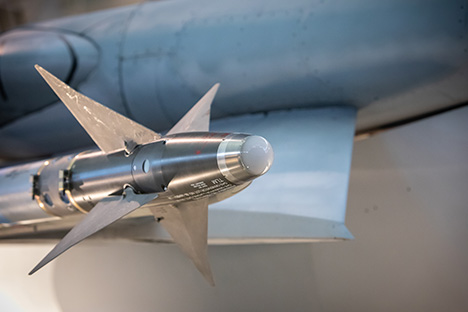Just because kids aren’t hiding under their desks during atomic bomb drills at school anymore doesn’t mean the world has gotten any safer.
If anything, it’s gotten more dangerous.
The threat of nuclear war remains very much alive, and many new threats have emerged since kids sat under their desks to protect themselves from Soviet missiles. Our nation and others are constantly under threat of cyberattack, and we also have to be on the lookout for chemical, biological and other types of weapons we couldn’t have imagined 20 or 30 years ago.
As a result, the defense industry is booming. And that has helped Raytheon Technologies (NYSE: RTX) grow its dividend every year since 2005.
For clarity, Raytheon Technologies is the result of a 2020 merger between Raytheon Company and United Technologies. Regardless, in both its past and present forms, Raytheon has continually grown its dividend. And the company has boosted it twice since the merger – by 8% each time.
Raytheon’s customers include the U.S. government and many other national governments. The company makes a wide variety of products used in defense. Its offerings include military engines, missile warnings systems, cyber defense systems, precision-guided weapons and many others.
All that production adds up to a lot of free cash flow.
In 2021, Raytheon Technologies generated just under $5 billion in free cash flow. In 2022, that figure is forecast to rise to $6.1 billion – which would be an impressive 23% growth rate.
Meanwhile, Raytheon paid out $3 billion in dividends last year and is expected to pay $3.2 billion this year, for a payout ratio of just 53%. So Raytheon should be able to continue to afford annual dividend increases.

Russia, China and the various terrorist organizations around the world laying down their weapons in a John Lennon-esque dream of brotherhood and humanity seems about as likely as me winning the heavyweight championship of the world. So Raytheon should be able to grow its free cash flow for years to come.
It would be nice if we didn’t need a company like Raytheon Technologies, but it’s a very good thing we have one. Dividend investors likely feel the same way.
Dividend Safety Rating: A

If you have a stock whose dividend safety you’d like me to analyze, leave the ticker symbol in the comments section. (Note: Safety Net looks only at stocks of individual companies, not exchange-traded funds or closed-end funds.)
Check to see whether I’ve written about your favorite stock recently. Click on the magnifying glass in the upper right part of the Wealthy Retirement homepage, type the company’s name in the search bar and hit enter.
Good investing,
Marc
